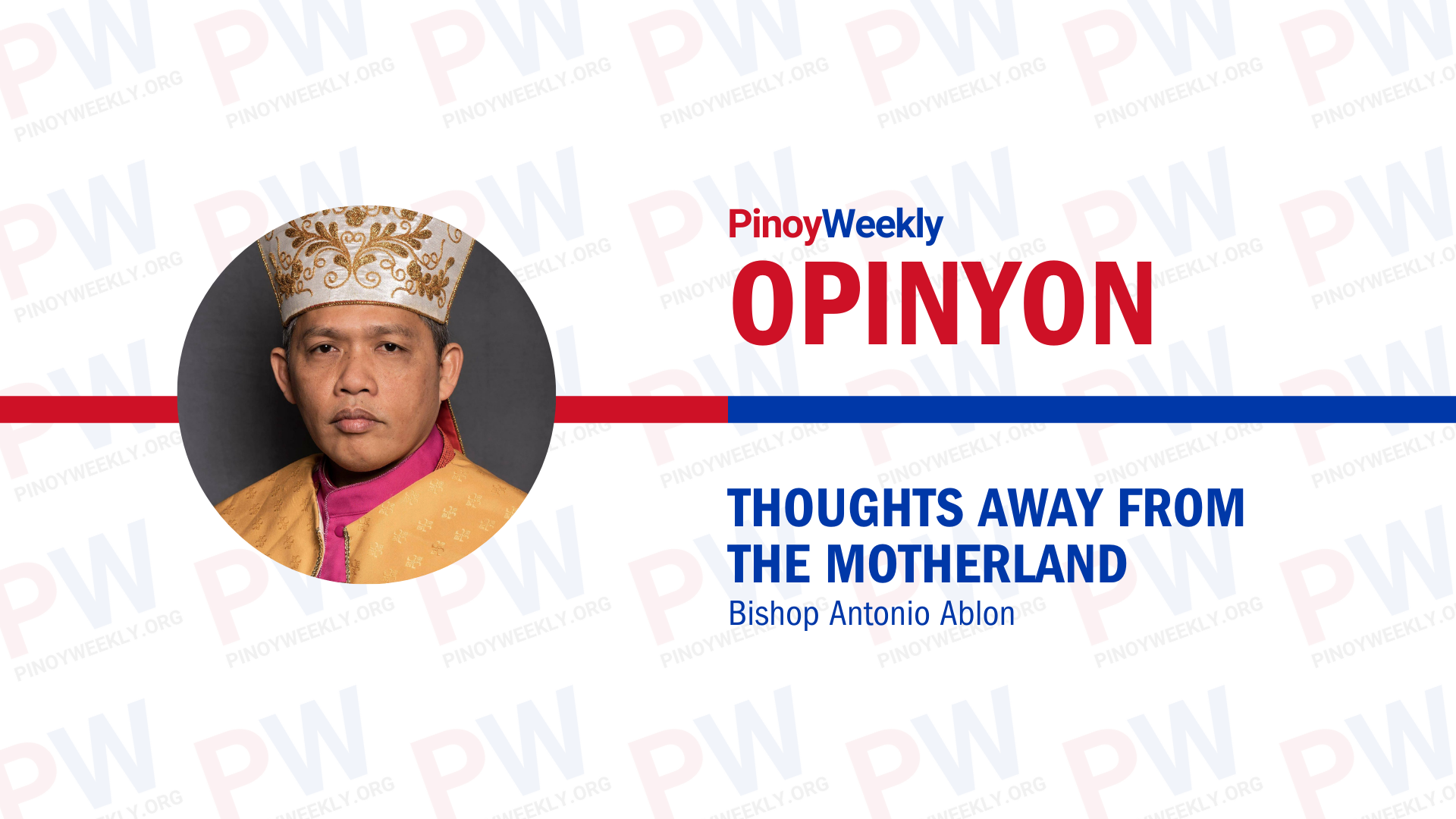Marcos Jr.’s Cha-cha: A threat to Filipino migrants and the Motherland
In a world fraught with uncertainty, where the allure of overseas employment often masks the harsh realities of exploitation and separation, Migrante Europe’s stance against Marcos Jr.’s Cha-cha serves as a beacon of hope.

In the heart of Europe, amidst the picturesque city of Amsterdam, Migrante Europe recently convened its fourth congress on March 30-31, 2024, echoing a resounding rejection of Marcos Jr.’s proposed Charter change (Cha-cha) and its detrimental impacts on both Filipino migrants and the homeland they left behind.
Under the theme “Filipino Migrants Unite: Jobs at Home, Not Abroad,” over 60 delegates from 18 affiliate organizations and Migrante chapters spanning seven countries deliberated on the looming specter of Cha-cha and its implications for the Filipino people. At the forefront of discussions was the sobering realization that economic amendments touted as job creators could, in fact, exacerbate joblessness and drive more Filipinos to seek opportunities overseas.
Gary Martinez, newly elected Chairperson of Migrante Europe, minced no words in exposing the ulterior motives behind Marcos Jr’s push for Cha-cha. He emphasized that the purported economic reforms serve as a smokescreen for facilitating the plunder of the Philippines’ natural resources by foreign monopolies.

Martinez aptly pointed out that genuine job creation necessitates comprehensive land reform and the development of domestic industries, offering Filipinos viable alternatives to the hardship of seeking livelihoods abroad.
Echoing Martinez’s sentiments, Sonny Africa, Executive Director of the Ibon Foundation, underscored the urgent need for migrant communities to resist Marcos Jr.’s Cha-cha. Africa warned against the insidious extension of presidential term limits camouflaged as “economic amendments,” urging Filipinos worldwide to stand in solidarity against this assault on democratic principles.
Mercedita de Jesus, a member of Migrante Italy, seized the platform to demand justice for her missing son, Gene Roz Jamil “Bazoo” de Jesus, and his companion Dexter Capuyan. Their disappearance underscores the perilous conditions faced by activists and advocates in the Philippines, where dissent often comes at a grave cost.
The congress also reflected on past triumphs and ongoing campaigns, including the rescue of trafficked workers and the steadfast advocacy for undocumented Filipinos’ regularization. These efforts underscore Migrante Europe’s unwavering commitment to safeguarding the rights and welfare of Filipino migrants, even in the face of formidable challenges.
As the assembly drew to a close with the election of new officers, the overarching call to end the Philippine government’s Labor Export Policy resonated loud and clear. It is a call to action, a rallying cry for unity in the face of adversity, and a testament to the resilience of Filipino migrants worldwide.
In a world fraught with uncertainty, where the allure of overseas employment often masks the harsh realities of exploitation and separation, Migrante Europe’s stance against Marcos Jr.’s Cha-cha serves as a beacon of hope. It is a reminder that the fight for justice knows no borders and that the struggle for a better future begins at home. As we stand in solidarity with our migrant brethren, let us heed their call and strive for a Philippines where every Filipino can thrive, not just survive.
Migrante Europe stands firm in its commitment to championing the democratic rights and welfare of Filipino migrants while advocating for genuine freedom and democracy for the Filipino nation as a whole. The organization recognizes and confronts the profound exploitation and oppression experienced by themselves and their families as they embark on journeys across seas in search of livelihood opportunities.
The harsh realities of severe poverty, systemic injustice, and the relentless grip of economic hardship force many Filipinos to leave their homeland behind. They are compelled to sacrifice familial bonds and endure the uncertainties of life abroad, all in pursuit of basic sustenance and a chance at a better future. Yet, their departure is not solely a matter of personal choice; it is often a response to the exploitative mechanisms perpetuated by the Philippine government’s neoliberal labor export program.
Their departure is not solely a matter of personal choice; it is often a response to the exploitative mechanisms perpetuated by the Philippine government’s neoliberal labor export program.
This program effectively commodifies Filipino labor, treating it as a mere export commodity to be traded on the global market. The primary objectives behind this scheme are twofold: to generate substantial funds for servicing external debt and bolstering international trade, and to quell domestic dissent stemming from rampant poverty and unemployment. In essence, Filipino migrants become unwitting pawns in a larger geopolitical game, serving the interests of foreign powers and multinational corporations.
However, Migrante Europe staunchly opposes this insidious program, recognizing it as a symptom of a deeply flawed socio-economic system that prioritizes profit over people. They firmly believe that the root causes of mass migration lie not in the inherent desire of Filipinos to leave their homeland, but rather in the systemic injustices perpetuated by a ruling elite beholden to imperialist interests.
In their unwavering pursuit of justice and equality, Migrante Europe stands in solidarity with fellow migrants of all nationalities. They recognize that the struggle for migrant rights transcends borders and that their collective efforts must be united in the face of adversity.
Furthermore, Migrante Europe aligns itself with broader movements against imperialism, recognizing the shared struggles of oppressed peoples worldwide. They lend their voices to the chorus of resistance against forces that seek to exploit resources, suppress independence, and undermine the democratic aspirations of nations.
In solidarity with migrants and movements across the globe, Migrante Europe remains steadfast in its resolve to defend the rights and welfare of Filipino migrants and to contribute to the larger struggle for genuine freedom, democracy, and social justice in the Philippines and beyond.
